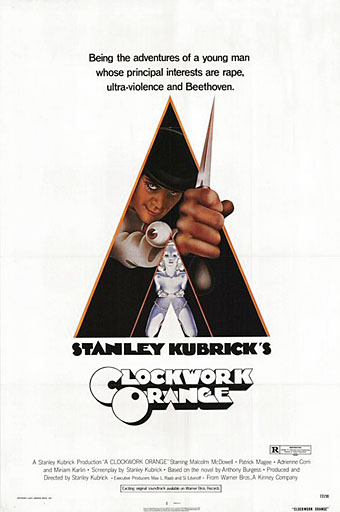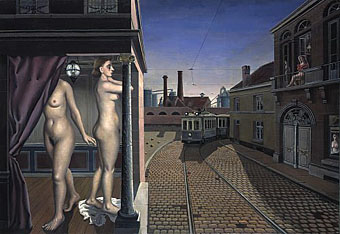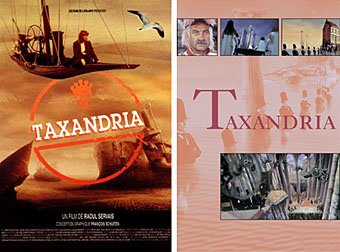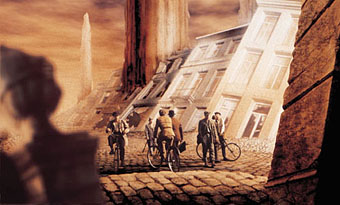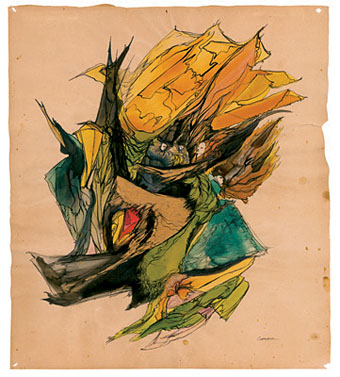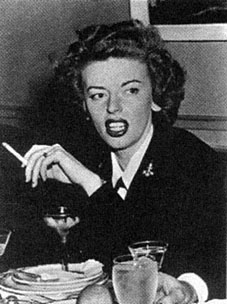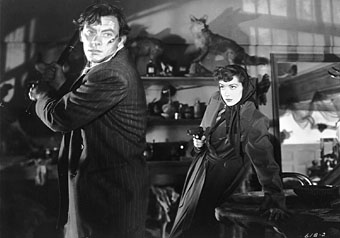
John Ireland and Marsha Hunt in Raw Deal (1948).
Yes, there was another decade besides the ’70s when Hollywood made films with downbeat endings. The NYT manages to write about Raw Deal without mentioning its director, the great Anthony Mann. Never mind, at least they credited John Alton.
Beyond a Shadow of a Doubt, Nights Are Noir in Fog City
By WENDELL JAMIESON
New York Times, January 29, 2007
SAN FRANCISCO, Jan. 28 — The orange and blue neon lights of the Castro Theater shone blurrily on the damp asphalt beneath the crisscrossing catenary wires of the streetcars. The words on the marquee in the Friday night gloom, read: “Marsha Hunt: In Person.”
Ms. Hunt made more than 50 movies before her career was wrecked in 1950 by the Hollywood blacklist. One of them, a 1948 crime melodrama called “Raw Deal,” has gone on to an unlikely second life as a favorite of the cultish devotees of film noir. On Friday it opened the fifth annual Noir City film festival here, and Ms. Hunt, 89, was on hand to watch its dreamlike silvery hues make a rare appearance on a big — very big — screen.
Lithe and glowing, Ms. Hunt took the stage after the film and said she was surprised not only that this dark little B movie had found fans nearly 60 years after its release, but that so many of them were here, nearly filling the Castro’s more than 1,400 seats. The crowd was a mix of young and old, polished and scruffy, with only a few fedoras in sight.
“I can’t get over this,” Ms. Hunt said as the film festival’s founder and organizer, Eddie Muller, genially interviewed her at the foot of the stage. “It was a strange sort of film,” she added, “about as negative as you can get. They hadn’t coined the term ‘noir’ yet.”
She’s right. It’s hard to imagine a darker film, literally or figuratively, than “Raw Deal.” Consisting almost entirely of luminescent day-for-night photography, it’s the story of an escaped con (played by Dennis O’Keefe) and the two women who love him (Ms. Hunt was one; Claire Trevor was the other), and features, among other pitch-black set pieces, a villain (Raymond Burr) who disfigures his girlfriend with a flaming dessert, and a furious midnight brawl in a seaside taxidermy shop. At the end everyone is either ruined, dead or under arrest.
And that darkness was just fine with the moviegoers here, which applauded vigorously as the closing titles rolled, just as they had at the beginning when the credit for the film’s director of photography, John Alton, the master of all that darkness, appeared on screen.
Mr. Muller, an author and film noir aficionado, dreamed up the film festival five years ago as a way to increase visibility for the Film Noir Foundation he runs, which works to restore the movies, and to promote his own books. (He most recently helped write Tab Hunter’s autobiography.) The Castro, built in 1922 and recently refurbished, had some dead time in January, and the festival (which runs this year through Feb. 4) was born — with a bang. The first double bill in 2003, “The Maltese Falcon” and “Dark Passage” — two seminal San Francisco noirs — sold out.
“It was huge right out of the gate,” he said. ”It totally threw me.” In the years since, he’s sold an average of 880 seats a night.
Of course subject matter and city are well matched. San Francisco has a noir pedigree rivaling that of New York or Los Angeles, its fog, slanting streets, circa-1940’s office buildings and dank narrow streets creating untold scores of blind alleys for characters unlucky enough to be trapped in them. Several noirs, including “Raw Deal,” have been set here.
On Friday the weather didn’t disappoint, with a steady rain falling much of the day. The sun made a half-hearted attempt to appear around noon, then gave up and went back to bed.
The Noir City festival may not be Sundance, but it too has its celebrities and scenes. Before “Raw Deal” on Friday the Castro’s balcony was crammed for a reception, with an open bar, a jazz band and Ms. Hunt signing copies of her book, “The Way We Wore: Styles of the 1930s and ’40s and Our World Since Then” (Fallbrook, 1993).
Among those on hand was Richard Erdman, 81, a character actor whose face is as recognizable — his credits include “Stalag 17” and “Tora! Tora! Tora!” — as his name is unknown. He had a supporting role in “Cry Danger,” the first film on Saturday night’s double bill, and looked so familiar standing there at the reception that it was almost impossible not to run up to him and say, “Haven’t we met before?”
Like Ms. Hunt, Mr. Erdman seemed a little puzzled as to why exactly, so many years later, these movies are finding a new following. Asked for a theory, he thought for a moment and said: “I really have no idea. I’m not putting it down, I just don’t understand it.”
He heaped praise on Mr. Muller and his crew of volunteers for running a high-class operation. “They’re not chintzy,” he said, sipping a glass of white wine.
Film noir is enjoying something of a second golden age at the moment. In addition to the San Francisco festival, the Film Forum in New York City offered a major noir series last year, and studios like Warner Brothers and Fox have ratcheted up their noir reissues to such an extent that many films that never made it out on VHS are appearing on DVD. Just last week Warner Home Video released 1952’s “Angel Face,” starring Robert Mitchum, which had only been available on foreign or pirated VHS tapes. Mr. Muller provides the commentary track.
“With film noir, if you show it to a group of 20-year-olds, they’ll find something to get hooked on,” said George Feltenstein, Warner Home Video’s voluble senior vice president for marketing for its classic catalog. “There is a sexiness to it, there is a mystery took it. These are very seductive movies, they are not cookie-cutter.”
Warner Brothers has released three noir box sets. The first, which came out in 2004 and featured titles like “Out of the Past” and “The Asphalt Jungle,” hit No. 1 on Amazon.com’s DVD list. This year Warner’s fourth noir set will include 10 rather than 5 movies. Here’s a scoop for noir fans: Two will star Mr. Mitchum.
Whatever the machinations of the DVD business, here at the Noir City festival, everyone was in a pretty good mood by the time the second title of opening night, “Kid Glove Killer,” a super-rarity from 1942, rolled to its conclusion. This one had a happier ending, with Ms. Hunt getting a marriage proposal, delivered beneath a microscope, from a skinny and surprisingly big-haired Van Heflin.
Coats and fedoras went back on, and the crowd headed for the exits. Ms. Hunt stood by the door, shaking hands and signing autographs, as her new legions of fans emerged onto the shiny street and headed off into the night.
Previously on { feuilleton }
• Film noir posters
• Early Kubrick
• Kiss Me Deadly

